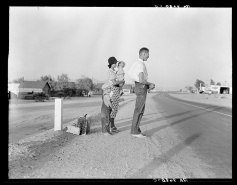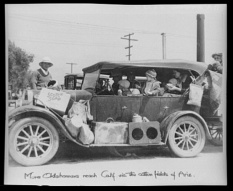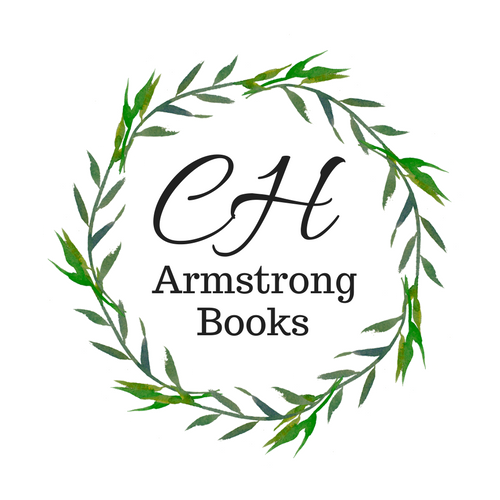Good morning! Today is Day Six of Banned Books Week, and I’m back with one of my favorite books of all time: The Grapes of Wrath!
Of course I’d have to address this book! In fact, I’m sure you were expecting it. When my own book takes place in the same era and also addresses victims of the Dust Bowl, how could I possibly not shout out to Steinbeck, the Joad family, and all Okies out there?!
But first, a disclaimer: By mentioning The Grapes of Wrath alongside my own novel, The Edge of Nowhere, I am in no way making comparisons. Though my novel is set during the same era and was, in many ways, inspired by Steinbeck’s novel, there is just no comparison. Nobody could compare to Steinbeck. He was a master at his craft. He seemed to intuitively understand human nature, and all of his books reflect that intuition. The Edge of Nowhere is not a “Steinbeckian Recreation” (How’s that for a phrase? I made it up!). Whereas Steinbeck’s novel tells the story of the Joad family who migrated west to escape the Dust Bowl, my novel focuses on those who were too poor to leave and were forced to stay behind.
But I digress. Back to the topic: Banned Books Week and The Grapes of Wrath.
As an Okie by birth and by blood, I think Steinbeck’s novel is one of the greatest pieces of literature ever put on paper. But not everyone agrees. When this novel was released in 1939, it faced equal amounts of criticism and praise. According to the Banned Book Awareness website, The Grapes of Wrath was a New York Times Bestselling Novel at the same time that protests were being held around the nation and copies were being burned. Let me repeat that: At the same time that the majority of America was reading and loving this book, a small segment of America was holding rallies where they burned copies of this novel in protest of its publication.
Yes. In America. Home of the Free. Where our forefathers sat down and wrote a document guaranteeing us the Freedom of Speech. Sadly, that Freedom of Speech extends to protests were beautiful books are destroyed by fire.
So what’s the problem with this book? Why so much protest? First let me start by telling you a little about the circumstances that prompted Steinbeck’s novel.

Photo Credit: Dorthea Lange (1936)
From 1930 to 1940, Oklahoma and many of the plains states suffered a devastating drought. Poor farming practices, combined with the drought, turned Oklahoma and neighboring states into an oasis of nothing but dust and dirt. Huge dust clouds rolled in, the skies turned black, and people took to their homes to escape. But there was no escape. The dirt entered through the tiniest crevices and left layers of dust and dirt everywhere. I’ve read stories where houseplants were so heavy with the settled dust that their limbs sagged. Houseplants — not trees or bushes outside, but the plants people keep inside their homes.
The devastation of this era was far-reaching. The Great Depression had begun and people were already hurting. Farmers, who tend not to be wealthy anyway, were now in a dire situation. The drought, combined with the blowing dust and dirt, turned their once fertile fields to something akin to a desert. Everywhere you looked was dirt. Nothing grew. What grew below the surface was scavenged by rabbits and other wild animals.
You’ve heard the phrase, Dirty Thirties? The very phrase that encompasses all of the United States during this era originated from the dust and dirt that covered Oklahoma and surrounding states. I’ve read that, though only a few states suffered from the drought conditions, nearly every state in the United States received some of the blowing dirt. I read somewhere that some of that same dirt blew from the Dust Bowl states right onto President Roosevelt’s desk in Washington D.C! Nobody was completely immune.
 The dust in Oklahoma and nearby states was relentless and settled in the lungs of every living thing. An epidemic of “dust pneumonia” ensued, striking hardest on the very young and the very old. Times became so hard that people began to look for a way out, and many of those people took the roads — sometimes walking — west toward California. They had to get out. They felt sure they couldn’t survive otherwise.
The dust in Oklahoma and nearby states was relentless and settled in the lungs of every living thing. An epidemic of “dust pneumonia” ensued, striking hardest on the very young and the very old. Times became so hard that people began to look for a way out, and many of those people took the roads — sometimes walking — west toward California. They had to get out. They felt sure they couldn’t survive otherwise.
 And so began the Great American Migration of the 1930s as depicted in Steinbeck’s novel, The Grapes of Wrath. Featuring the Joad family, Steinbeck tells the story of one family’s migration to California. To say that they met many trials and tribulations on their way is an understatement. They weren’t wanted, and the state of California did everything they could to keep migrant workers out in much the same way as the United States is arguing illegal immigration right now. Only these weren’t illegal aliens coming to America for a better life. These were American Citizens being denied, in some cases, the right to migrate to California. Those who made it and crossed the border were often exploited by working long hours for low pay. They lived in tent camps and, quite frankly, the conditions they’d migrated to weren’t much better than what they’d left behind.
And so began the Great American Migration of the 1930s as depicted in Steinbeck’s novel, The Grapes of Wrath. Featuring the Joad family, Steinbeck tells the story of one family’s migration to California. To say that they met many trials and tribulations on their way is an understatement. They weren’t wanted, and the state of California did everything they could to keep migrant workers out in much the same way as the United States is arguing illegal immigration right now. Only these weren’t illegal aliens coming to America for a better life. These were American Citizens being denied, in some cases, the right to migrate to California. Those who made it and crossed the border were often exploited by working long hours for low pay. They lived in tent camps and, quite frankly, the conditions they’d migrated to weren’t much better than what they’d left behind.
The nickname “Okie” — a name I take great pride in — was originally used as the most derogatory of descriptions in the same way as some of the most despicable slang for minority groups has been used over the years.
 It’s been reported that Steinbeck was appalled by the conditions that met the migrant workers, and that The Grapes of Wrath is the product of his own exposé on the subject, so to speak. But if this actually happened, why was Steinbeck’s book so reviled? Why did (and do) people want it banned?
It’s been reported that Steinbeck was appalled by the conditions that met the migrant workers, and that The Grapes of Wrath is the product of his own exposé on the subject, so to speak. But if this actually happened, why was Steinbeck’s book so reviled? Why did (and do) people want it banned?
The Banned Books website quotes writer Bryan Cordyack’s explanation for some of the earliest challenges of Steinbeck’s novel. It reads:
Bryan Cordyack wrote, “Steinbeck was attacked as a propagandist and a socialist from both the left and the right of the political spectrum. The most fervent of these attacks came from the Associated Farmers of California; they were displeased with the book’s depiction of California farmers’ attitudes and conduct toward the migrants. They denounced the book as a ‘pack of lies’ and labeled it ‘communist propaganda’.”
In 1939, it was burned by the East St. Louis, IL Public Library. Yes — burned. In the United States. By a library. Burned. Torched. Obliterated.
The Banned Books website cited above further states that twenty public libraries were ordered by the Kansas City Board of Education to remove it from bookshelves because, they felt, the book contained “indecency, obscenity, abhorrence of the portrayal of women and for ‘portraying life in such a bestial way.’”
NPR credits The Grapes of Wrath as “a key event in the creation of the Library Bill of Rights.” According to the American Library Association, the Library Bill of Rights reads:
The American Library Association affirms that all libraries are forums for information and ideas, and that the following basic policies should guide their services.
I. Books and other library resources should be provided for the interest, information, and enlightenment of all people of the community the library serves. Materials should not be excluded because of the origin, background, or views of those contributing to their creation.
II. Libraries should provide materials and information presenting all points of view on current and historical issues. Materials should not be proscribed or removed because of partisan or doctrinal disapproval.
III. Libraries should challenge censorship in the fulfillment of their responsibility to provide information and enlightenment.
IV. Libraries should cooperate with all persons and groups concerned with resisting abridgment of free expression and free access to ideas.
V. A person’s right to use a library should not be denied or abridged because of origin, age, background, or views.
VI. Libraries which make exhibit spaces and meeting rooms available to the public they serve should make such facilities available on an equitable basis, regardless of the beliefs or affiliations of individuals or groups requesting their use.
The Grapes of Wrath is maybe one of the best reasons that we must have free access to books. Steinbeck witnessed a deplorable situation and set out to make the world aware. Whether people chose to read his fiction account, or even whether to believe it was based upon actual situations, is obviously a personal choice. But to not have access to it is to doom the reading population to live in ignorance.
For more reading on the banning of The Grapes of Wrath, I’d strongly recommend the following articles. As I was writing this article this morning, I had a terrible time deciding what to include because the entire topic is so fascinating. Enjoy!
Banned Book Awareness: The Grapes of Wrath
The Telegraph: The Grapes of Wrath – 10 surprising facts about John Steinbeck’s novel
NPR: ‘Grapes Of Wrath’ And The Politics of Book Burning
Note: All images used in this article are public domain and found through a combination of sources including The Library of Congress, Wikimedia, and the U.S. Department of Agrictulture.




Leave a comment